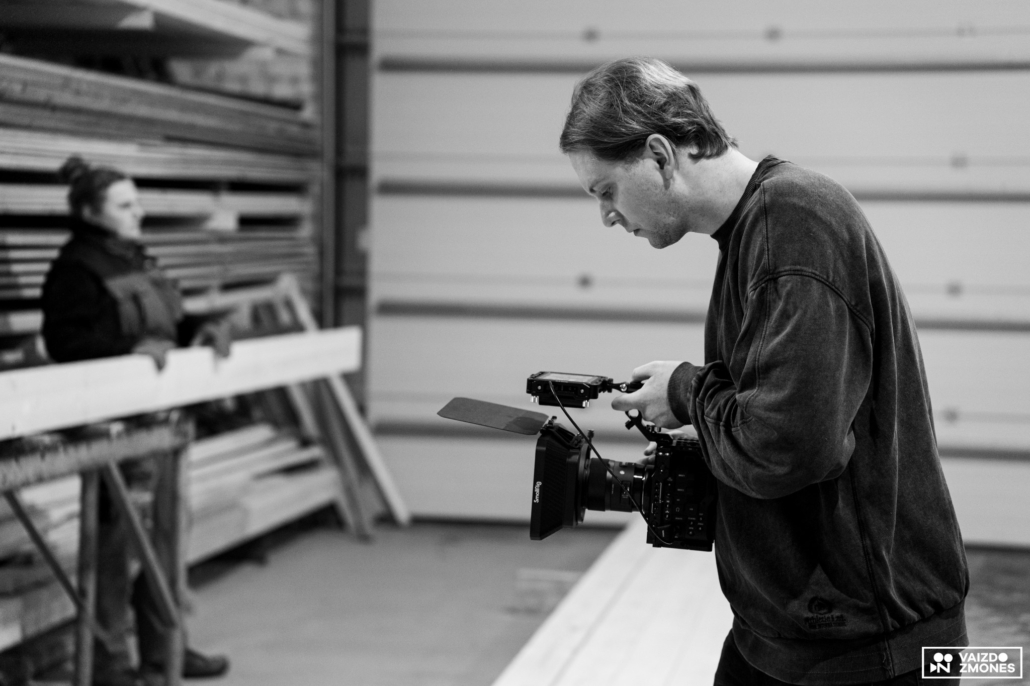Filming reports or how videographers create TV magic
Filming reports or how videographers create TV magic
It is unlikely that there will be a person who has not once in his life seen the news broadcast on television, has not watched one or another entertainment or informative program. Some people turn on the TV as a wake-up call in the morning with a cup of coffee, others watch the most important news reports on the way to or from work, and for others it's an evening ritual to sit down with their family on the sofa in front of their favorite show. But what does the backstage of television look like, how does it go filming reports, editing, how many people contribute to the birth of the magic of television - the rare viewer wonders.
Different television projects have different filming locations and different auras about them. However, one thing that is almost mandatory in this television industry is teamwork, treating your long-time colleagues as family members. After all, not always the shooting of reports takes place strictly only in the studio. Most of them are accompanied by different locations, traveling across Lithuania or even abroad, shifts lasting until midnight, which inevitably brings people working together closer together. How does it look the work of a videographer in such an environment? With a lot of improvisation, based on experience and professional practical knowledge, because you never know when the weather will hit you where you are filming the reports, or when the drone will land in the rapeseed fields after the battery has run out by mistake.
In television, unlike in movies, takes are rarely repeated, unless the editor of the show sees that an important scene will not be corrected in the editing. However, on such a site, where the filming of reports takes place, there is also live, unstaged, unplanned action in advance according to the script, so the professionalism of the cameraman is trusted, that he will understand and be able to capture what is happening in front of his eyes in time.

Filming of reports
A cameraman working behind the scenes of television must know:
- composition, lights, colors, focus and framing: you can specialize in a certain genre, but you need to be able to adapt to different filming styles, whether it's vox-pop, interviewing passers-by on the street, or cooking cookies in the studio, or a tractor driving through the field;
- technical specifications of cameras and equipment: as in any job, force majeure can happen on set, but no one but the cameraman will tell you how to change the camera battery, how to operate the drone, how to mount the GoPro or how many extension cords to run to the filming location would be professionally lit by lamps for filming;
- the art of communication and communication: shooting reports is teamwork together with the show's editor, producer, screenwriter, and sometimes even a whole group of colleagues, so the operator must be able to listen to expectations, understand what the main message of the filmed report is and what shots may be needed, to convey it in images;
- subtleties of multitasking: news operator the job is not just to press the REC button in time. On the set, you have to observe, listen, sometimes react quickly or solve unexpected problems here and now. You may have to film on a floating ship, in a treehouse, on a swinging bridge, from a moving car, in a hot air balloon, on top of a mountain, or in the most diverse places that the show's creative team can think of. Also, the skill of walking backwards or without looking at what is underfoot makes a lot of sense for the operator, but it is learned through experience;
- the secret of concentration and alertness: experience shows that what the viewer sees on the TV screen in 10 minutes, it takes several hours to film. Setting up the site, preparing the microphones and equipment, the filming process itself, capturing shots for overlays, and then organizing everything takes time. During the day, usually, more than one report is filmed, so it doesn't matter if you are tired or not in the mood, it is early in the morning before dawn, or late in the evening when it is already dark, the cameraman's emotions must not be visible in the filmed material;
- how to adjust the camera, not the people being filmed: presenters, guests or interviewers rarely stay in their places for the duration of the filming. They talk, move, depending on the ongoing conversation, they can even start dancing, disappearing from the shot altogether, so the operator's task is to be able to react to this, change camera angles, frames and not miss capturing a unique shot that cannot be repeated a second time;
- the mastery of scanning the set: there is a witty joke that one part of a cameraman's job is to ensure that the right things fit into the frame at the right time, and the second is to keep everything else out of the frame. Even in a perfectly prepared show studio, there may be "little things" that shouldn't be visible in the shot, and let's not talk about those locations, when you go to film in offices, farms, warehouses, or any other premises, the sight of a camera on the walls of which is equivalent to a holiday. As soon as an experienced cameraman enters the room, he will immediately notice pictures framed in glass, hanging mirrors or shiny surfaces that may reflect what is happening behind the scenes. The viewer does not have to see this, because the magic of television is born when the secrets of its creation remain behind the scenes.



